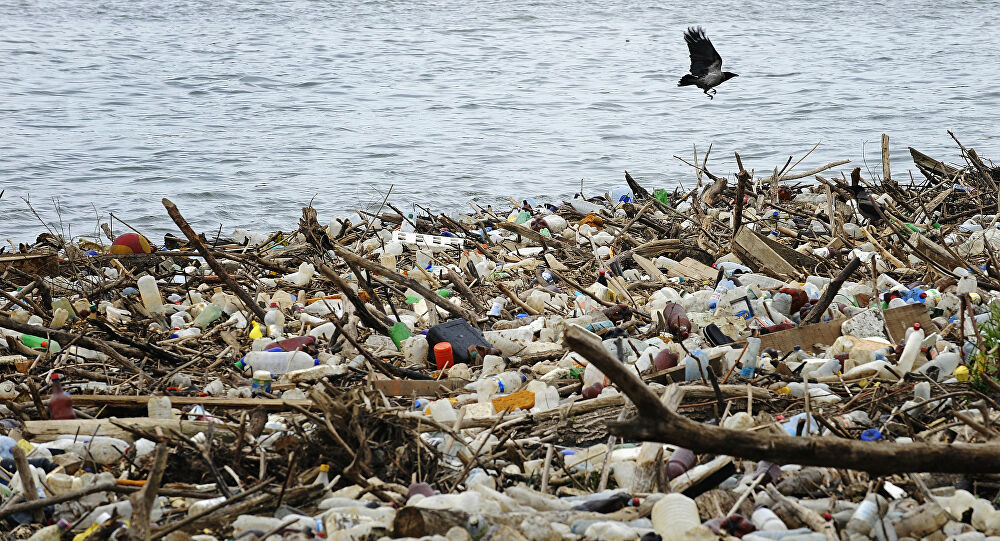11 Dec 2024

Tired Earth
By The Editorial Board

The federal government will devote $190m towards new recycling infrastructure, as it looks to divert more than 10m tonnes of plastic, paper and glass waste away from landfill.
The funding, which will be contingent on state and territory governments and industry groups matching the federal contribution, is part of a newly launched Recycling Modernisation Fund (RMF) that the Morrison government hopes will generate $600m in investment.
Both Labor and the Greens have expressed concern at the RMF, arguing the funding won’t stop production of problematic materials in the first instance and calling for regulatory reform.
In addition to the $190m, the federal government will also spend $24.6m on improving waste data to better track recycling targets, as well as $35m towards implementing its commitments under the National Waste Policy Action Plan – which include waste export bans, plans to increase domestic demand for recycled materials and a national resource recovery target of 80% by 2030.
However the first deadline as part of the proposed waste export ban has been pushed back, which the government claims is a result of a Covid-19 induced legislative backlog. As a result, legislation to enact the bans will be introduced sometime later this year, beginning with a ban on exporting glass waste from 1 January 2021, which had originally been planned to take effect from the second half of 2020.
The timeframes for other bans – on exporting mixed plastics from 1 July 2021, tyres from 1 December 2021, single resin and polymer plastics from 1 July 2022, and paper and cardboard from 1 July 2024 – are unchanged.
The announcement of the RMF comes after the national plastics summit in March when Scott Morrison outlined an overhaul of Commonwealth procurement rules to increase demand for recycled products, as part of the government’s new recycling policy.
The government has made reducing plastic waste the focus of its environment policy, with Morrison telling a UN climate summit last year his government would drastically reduce plastic pollution.
Monday’s announcement of the RMF comes as the government is due to release an interim report from the independent review of Australia’s national environmental laws, the Environment Protection and Biodiversity Conservation Act, led by the former competition watchdog chair, Graeme Samuel.
The environment minister, Sussan Ley, said the RMF was made contingent on state, territory and industry matching the investment because “we need manufacturers and industry to take a genuine stewardship role that helps create a sustainable circular economy”.
“As we cease shipping our waste overseas, the waste and recycling transformation will reshape our domestic waste industry, driving job creation and putting valuable materials back into the economy,” Ley said.
“Australians need to have faith that the items they place in their kerbside recycling bins will be re-used in roads, carpet, building materials and a range of other essential items.
“This is a once-in-a-generation opportunity to remodel waste management, reduce pressure on our environment and create economic opportunity,” she said.
The assistant minister for waste reduction and environment, Trevor Evans, said “our targeted investment will grow Australia’s circular economy, create more jobs and build a stronger onshore recycling industry”.
Labor’s assistant environment spokesman Josh Wilson criticised the government for how long it took to introduce the scheme.
“Unfortunately today’s announcement is belated action on one part of that integrated picture. It does not address the critical area of regulatory reform … And there is still no detail on how demand for recycled content will be supported through meaningful procurement targets and related mechanisms,” he said.
“We look forward to further detail about the funding and especially the timelines,” Wilson said.
Greens waste and recycling spokesman Peter Whish-Wilson took the criticism further, saying the RMF “just won’t work”.
“All the money in the world isn’t going to fix the waste crisis if we don’t improve the way we recycle. This means stopping the problem at its source: we need to stop producing so much waste and invest in a ‘circular economy’.”
He criticised the government’s preference for “voluntary schemes”, and called for a ban on single-use plastic products.
“The recycling crisis is a quality crisis - we need to improve the quality of the material that is going into the recycling process to begin with,” he said.
The government has recently been forced into finding new solutions to manage Australia’s waste and recycling, after governments including those of Indonesia and Malaysia announced they would return recycling that had been “contaminated” with unrelated waste.
Source : www.theguardian.com
Comment